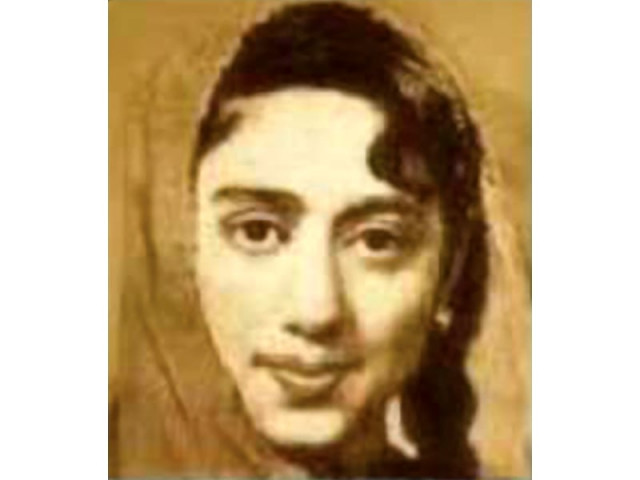Obituary: Zubeda died not on Saturday but decades ago
How many Zubedas will be murdered for the hypocrisy of our society and the fake and lopsided concept of ‘honour’.

Zubeda Khanum. PHOTO: FILE
Many think that Zubeda Khanum died on Saturday, but considering the enormous talent she possessed, she died the day she was asked not to sing anymore. She was told to live like a ‘good woman’ and a ‘good wife’. She was gradually pressured into staying at home and caring for her children.
This came from a husband who was Syed by ‘ethnicity’ and explained to her in many ways that women of Syed families do not perform. Not to mention that he himself got his name and livelihood by being a photographer in Lollywood and his brother, of course also Syed, earned his name, his status and his income from being a director in the film industry. The same film industry was an institution of opportunity and creative expression for both brothers, while it was a stigma for Zubeda. Perhaps I forgot to mention that Zubeda was a star on her way to the top when she was chosen by this Syed family for marriage. It was a big thing to marry the most popular singer of the time, with a promise that she would not be stopped from singing. She and her mother also saw comfort and security in a family much established in the industry and thought it would give her singing career some protection. The lucrative world of cinema was harsh to single, young and beautiful women. Little did she know that this protection would come at a very high price. She would have to eventually kill the artiste in her. This was not a death of her talent within her, but a murder - on the part of her family, the film industry and the society at large. The famous singer Zubeda Khanum died decades ago and no one shed a tear.

Zubeida Khanum was as famous as Madam Noor Jehan at one point. Her top hits included Teri ulfat me sanam dil ne bohat dard sahey; ae chand un se ja ker mera salaam (film: Sarfarosh); Kia hua dil pe situm (film: Raat ke Raahi); Aaey musam rangeeley suhaney; ghungat uthaun ke ghungat nikalun (film: Saat Lakh); and rotey hen chum chum nain (film: Sola Aney). Her Punjabi hits also acclaimed popularity across the country like Desan da raja mera babal da piara (film: Kartar Singh); Reshum da lacha (film: Yakey Wali); Bundey chandi de soney di nath (film: Chun Mahi); Sayio ni mera dil dharkey (film: Shiekh Chilli); and meri chuni dian reshmi tandan (film: Shehri Babu). The rising star caught everyone’s attention in the 1950s and took over the business of playback singing. Noor Jehan at the time was only singing for her own roles in films.
I described my meeting with Zubeda in detail in the last chapter of my book, “Forgotten Faces” (published by Lok Virsa) where I was trying to convince her to appear in a PTV show I was hosting. This was about women artistes who were very famous at one point but then vanished away from the lime light. I was a big fan of hers but with all my persuasive skills I was not able to get her in my program. Her family strictly forbade her.
She was not only stopped from singing but her past was weighed upon her as a stigma, especially when it was time to marry off her daughters. She was even forbidden to sing her songs in private gatherings. I will never forget the helplessness and yearning to sing in her eyes I saw that day. She told me she could not stand other young singers re-singing her songs. She said she still had enough in her to sing them herself if she could. Her eyes got wet when she made this claim. She had a hard time opening her heart to me but spoke in half sentences with a lot of hesitation. She only satisfies herself by singing religious songs during muharram at private majalis. Even permission for this was considered a big favour.
Ironically, her Syed son also chose the showbiz as his forte. Upon pressure from some senior television personalities he was convinced to get his mother on television a couple of times for an interview in her later life.
How many Zubedas will be murdered for the hypocrisy of our society and the fake and lopsided concept of ‘honour’. I am sorry for the person who died a few days ago but my hero who was a star and one of the best singers in South Asia was murdered a long time ago and everyone remained silent.
(The writer is a women’s rights activist and an authority on folk music and culture. She blogs on fouziasaeed.wordpress.com and tweets @fouziasaeed)
Published in The Express Tribune, October 22nd, 2013.



















COMMENTS
Comments are moderated and generally will be posted if they are on-topic and not abusive.
For more information, please see our Comments FAQ